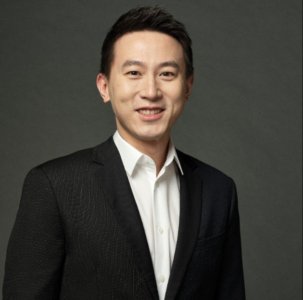Singapore’s pride in Shou Zi Chew risks overshadowing the critical issues within TikTok
TikTok CEO Shou Zi Chew recently became a global sensation after a five-hour Congressional hearing, leaving Capitol Hill as an unlikely hero. From TikTokers creating fan edits to Singaporeans praising him on LinkedIn, Chew’s calm demeanor and his poised answers amid pointed questioning earned him admiration worldwide. Yet, while it’s heartening to see a Singaporean in the global spotlight, it’s crucial to remember he represents a tech powerhouse with its own set of challenges.
TikTok, like other social media giants, faces scrutiny over privacy, data security, and its addictive algorithms. The app’s short-form videos and hyper-personalized feed are built for endless engagement, but these features have raised unique concerns, especially as TikTok has become a major platform in the U.S., amassing 150 million monthly active users.
During his Congressional testimony, Chew faced a barrage of questions focused on potential Chinese influence over TikTok, which is owned by Chinese parent company ByteDance. Lawmakers probed whether user data could be accessed by the Chinese government—a concern amplified by the geopolitical tensions between the U.S. and China. Chew maintained composure, even managing moments of subtle humor in response to outlandish questions, which only fueled the public’s newfound affection for him.
As TikTok’s charismatic “zaddy” CEO, Chew’s background is certainly impressive. A Singaporean and Harvard Business School graduate with a track record at Facebook, Goldman Sachs, and Xiaomi, Chew embodies the dream of global success many Singaporeans admire. Yet, admiration for him shouldn’t overshadow concerns surrounding TikTok itself. Behind the likeable CEO is a platform that, despite Chew’s assurances, has raised valid questions regarding data privacy, content moderation, and the impact on mental health.
For example, reports have revealed that ByteDance employees could access TikTok’s U.S. user data, and leaked documents showed that TikTok moderators were instructed to suppress content that didn’t fit a certain “standard”—a practice that can reinforce damaging social norms. The platform’s infamous algorithm prioritizes engagement to such a degree that users find themselves captivated by “sludge content,” which combines multiple, sometimes chaotic video elements. Experts worry this sensory overload may be reducing attention spans and contributing to a rise in mental health issues, particularly among younger users.
So, while Chew’s portrayal as a poised, relatable CEO has won public favor, it’s essential not to ignore TikTok’s red flags. He may have captivated social media, but the fact remains that TikTok’s powerful algorithm wields significant influence over millions, shaping everything from beauty standards to attention spans.
In the end, TikTok deserves careful scrutiny beyond the allure of its CEO. We should be mindful of the influence the platform—and its algorithm—have on our society and resist allowing charismatic leadership to mask its deeper concerns.








